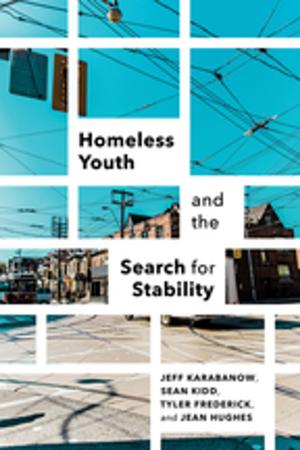Wait Time
A Memoir of Cancer
Nonfiction, Health & Well Being, Health, Health Care Issues, Biography & Memoir, Reference, Medical| Author: | Kenneth Sherman | ISBN: | 9781771121903 |
| Publisher: | Wilfrid Laurier University Press | Publication: | December 16, 2015 |
| Imprint: | Wilfrid Laurier University Press | Language: | English |
| Author: | Kenneth Sherman |
| ISBN: | 9781771121903 |
| Publisher: | Wilfrid Laurier University Press |
| Publication: | December 16, 2015 |
| Imprint: | Wilfrid Laurier University Press |
| Language: | English |
When poet and essayist Kenneth Sherman was diagnosed with cancer, he began keeping a notebook of observations that blossomed into this powerful memoir. With incisive and evocative language, Sherman presents a clear-eyed view of what the cancer patient feels and thinks. His narrative voice is personal but not confessional, practical but not cold, thoughtful and searching but not self-pitying or self-absorbed.
The author’s wait time for surgery on a malignant tumour was exceptionally long and riddled with bureaucratic bumbling; thus he asks our health-care providers and administrators if our system cannot be made efficient and more humane. While he is honest about what is good and bad in our system, he is not stridently political or given to directing blame. His narrative is interwoven with engaging ruminations on the meaning of illness in society, and is peppered with references to other writers’ thoughts on the subject. A widely published poet, Sherman helps the reader understand the deep connection between disease and creativity—the ways in which we write out of our suffering. Wait Time will be of special interest to anyone facing a serious illness as well as to health-care providers, social workers, and psychologists working in the field. Its thoughtful observations on health, life priorities, time, and mortality will make it of interest to all readers.
When poet and essayist Kenneth Sherman was diagnosed with cancer, he began keeping a notebook of observations that blossomed into this powerful memoir. With incisive and evocative language, Sherman presents a clear-eyed view of what the cancer patient feels and thinks. His narrative voice is personal but not confessional, practical but not cold, thoughtful and searching but not self-pitying or self-absorbed.
The author’s wait time for surgery on a malignant tumour was exceptionally long and riddled with bureaucratic bumbling; thus he asks our health-care providers and administrators if our system cannot be made efficient and more humane. While he is honest about what is good and bad in our system, he is not stridently political or given to directing blame. His narrative is interwoven with engaging ruminations on the meaning of illness in society, and is peppered with references to other writers’ thoughts on the subject. A widely published poet, Sherman helps the reader understand the deep connection between disease and creativity—the ways in which we write out of our suffering. Wait Time will be of special interest to anyone facing a serious illness as well as to health-care providers, social workers, and psychologists working in the field. Its thoughtful observations on health, life priorities, time, and mortality will make it of interest to all readers.















